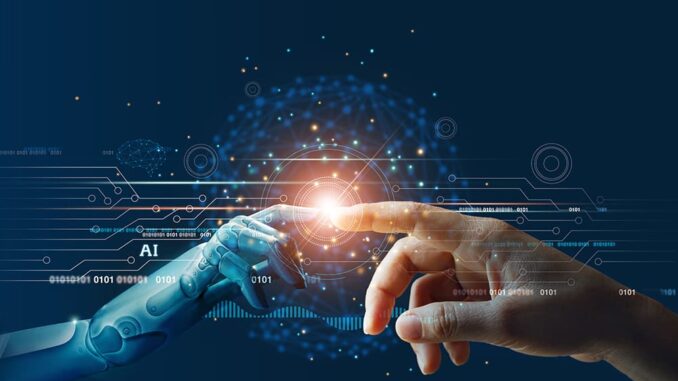
AI-enhanced learning and education are rapidly transforming the landscape of how students learn, teachers instruct, and
institutions operate. Here are several key ways in which AI is being applied to improve education:








### Personalized Learning Experiences
1. **Adaptive Learning Platforms**: AI systems can analyze a student’s learning style, pace, and progress to customize educational content. For instance, platforms like Knewton and Smart Sparrow adjust the difficulty level of questions based on real-time performance.
2. **Tailored Curriculum**: AI can help educators design personalized learning paths for students, addressing their individual strengths and weaknesses, and allowing for a more tailored curriculum that meets each student’s needs.
### Intelligent Tutoring Systems
1. **Virtual Tutors**: AI-powered tutoring systems can provide students with additional support outside the classroom. These tutors can answer questions, provide explanations, and give feedback on assignments, simulating one-on-one interaction with a human tutor.
2. **Practice and Revision Tools**: AI tools can generate personalized quizzes and practice materials based on a student’s previous performance, helping them to focus on areas where they need improvement.
### Administrative Efficiency
1. **Automation of Administrative Tasks**: AI can automate scheduling, grading, and other administrative tasks, allowing educators to focus more on teaching and engaging with students. This can significantly reduce paperwork and enhance operational efficiency.
2. **Data-Driven Decision Making**: AI can analyze student data to provide insights on enrollment trends, student performance, and curriculum effectiveness, enabling institutions to make informed decisions.
### Enhanced Engagement and Interactivity
1. **Gamification**: AI can facilitate gamification in learning, creating engaging and interactive educational experiences that motivate students to participate actively in their learning process.
2. **Virtual and Augmented Reality**: AI-powered VR and AR applications can create immersive learning environments, making complex subjects more accessible and engaging. These technologies help in simulating real-world experiences in a controlled setting.
### Natural Language Processing and Communication
1. **Language Learning**: AI-driven apps like Duolingo use natural language processing to facilitate language learning by adapting to the user’s proficiency and providing instant feedback on pronunciation and grammar.
2. **Chatbots for Support**: Educational institutions can deploy AI chatbots to answer student queries, provide information about courses, and assist with administrative processes, improving accessibility and support.
### Assessment and Feedback
1. **Automated Grading**: AI can assist in grading essays and open-ended responses, enabling faster feedback for students and reducing the grading burden on teachers. Tools like Gradescope offer this functionality.
2. **Predictive Analytics**: AI can identify at-risk students by analyzing patterns in their performance data, allowing educators to intervene early and provide necessary support.
### Collaborative Learning
1. **Enhanced Collaboration Tools**: AI can facilitate collaborative learning by suggesting groups, organizing collaborative tasks, and providing platforms for peer feedback based on student skills and interests.
2. **Social Learning Environments**: AI can foster social learning experiences by identifying common interests among students and promoting group activities that encourage peer learning and mentorship.
### Challenges and Considerations
While AI in education offers numerous benefits, it also presents challenges such as data privacy concerns, the risk of exacerbating inequities (if access to AI tools varies), and the need for teacher training in AI tools. Therefore, implementing AI in education should be done thoughtfully, ensuring that ethical standards and inclusivity are prioritized.
### Conclusion
AI-enhanced learning and education represent a significant shift in how knowledge is imparted and acquired. By leveraging AI technologies, educational institutions can create more engaging, efficient, and personalized learning experiences that cater to the diverse needs of students, ultimately promoting better learning outcomes and preparing them for the future.

Leave a Reply